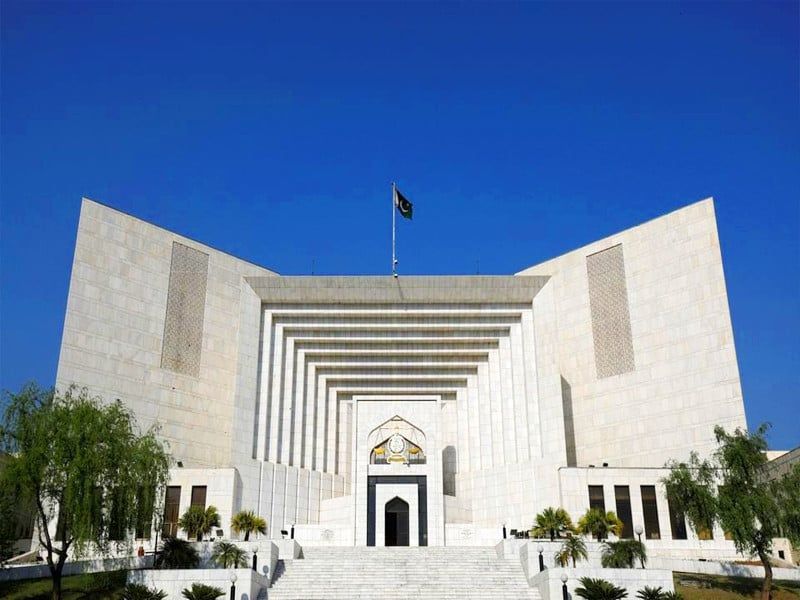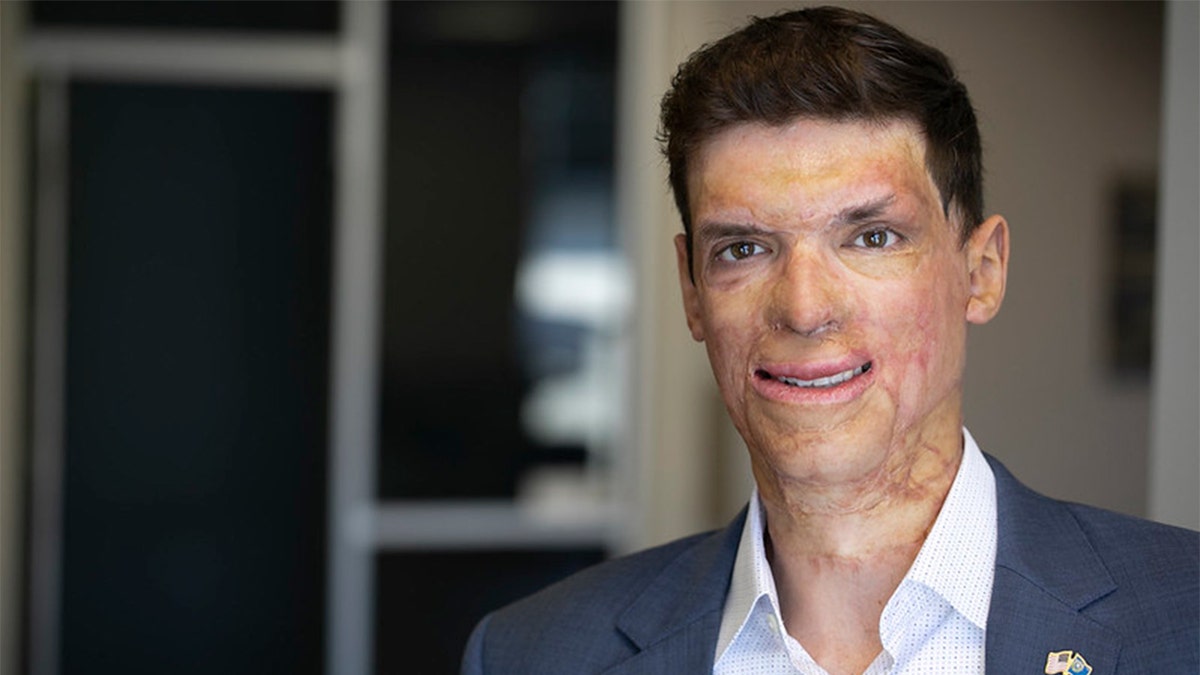Following the release of the Durham report, which concluded there was no basis for the Trump-Russia collusion narrative, Rep. Adam Schiff's (D-CA) prior assertions of possessing "evidence" of such collusion have come under intense scrutiny. Schiff, a prominent figure during the Russiagate saga, was censured by House Republicans for misleading the American public with his claims.
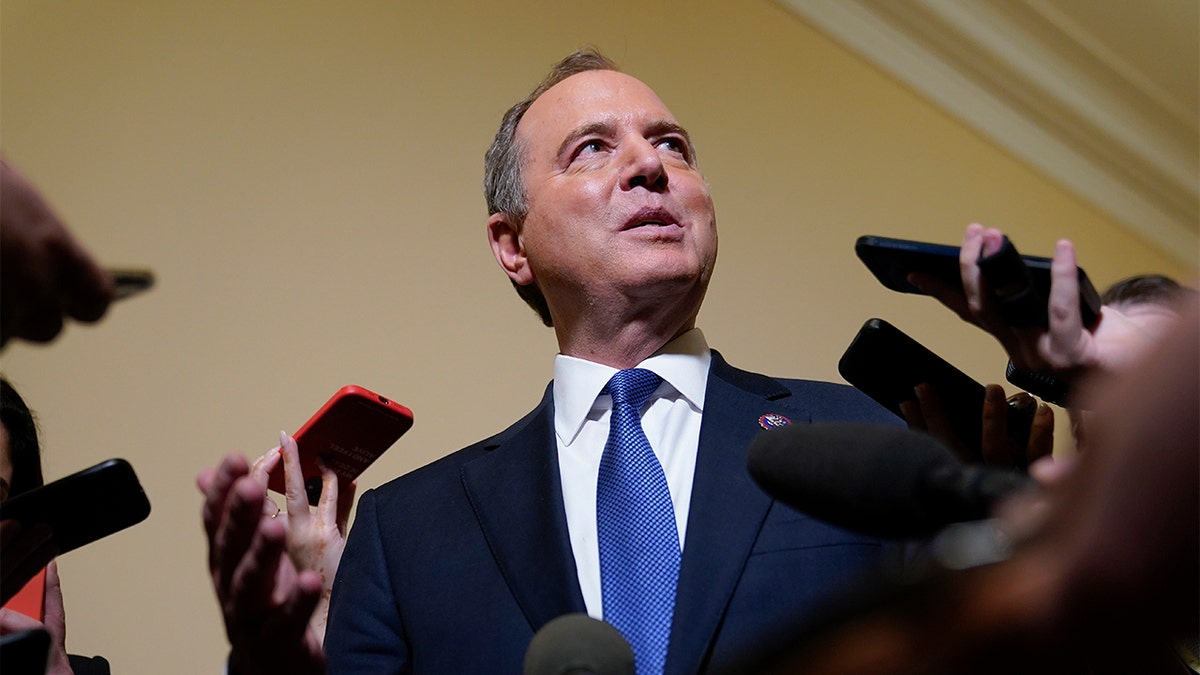
Rep. Adam Schiff, D-Calif., was censured by his GOP colleagues for "misleading the American public" after countless TV appearances alleging he had seen evidence of Russian collusion. (AP Photo/Patrick Semansky)
The Durham report revealed that the FBI's original investigation into alleged collusion, known as Crossfire Hurricane, was launched based on flimsy intelligence. Both the Mueller investigation and the Durham investigation ultimately found no evidence of collusion between the Trump campaign and Russia.
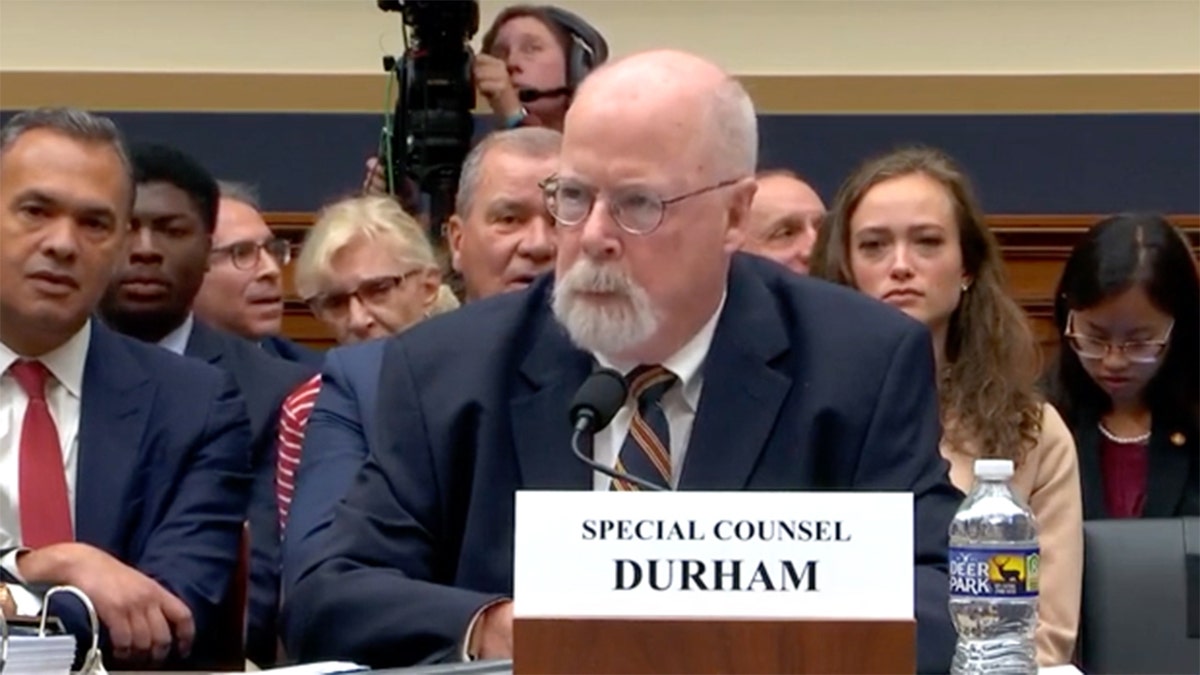
John Durham testified before the House Judiciary Committee to discuss his findings from his investigation looking into the origins of the Russia probe. (Screenshot/House Judiciary Committee)
Schiff's repeated claims of possessing evidence, made across various media appearances, are now being questioned. He initially asserted having "circumstantial evidence" and "direct evidence of deception," later escalating his rhetoric to claim possession of "evidence that is not circumstantial." Despite these assertions, neither the Mueller nor Durham investigations uncovered any such evidence.
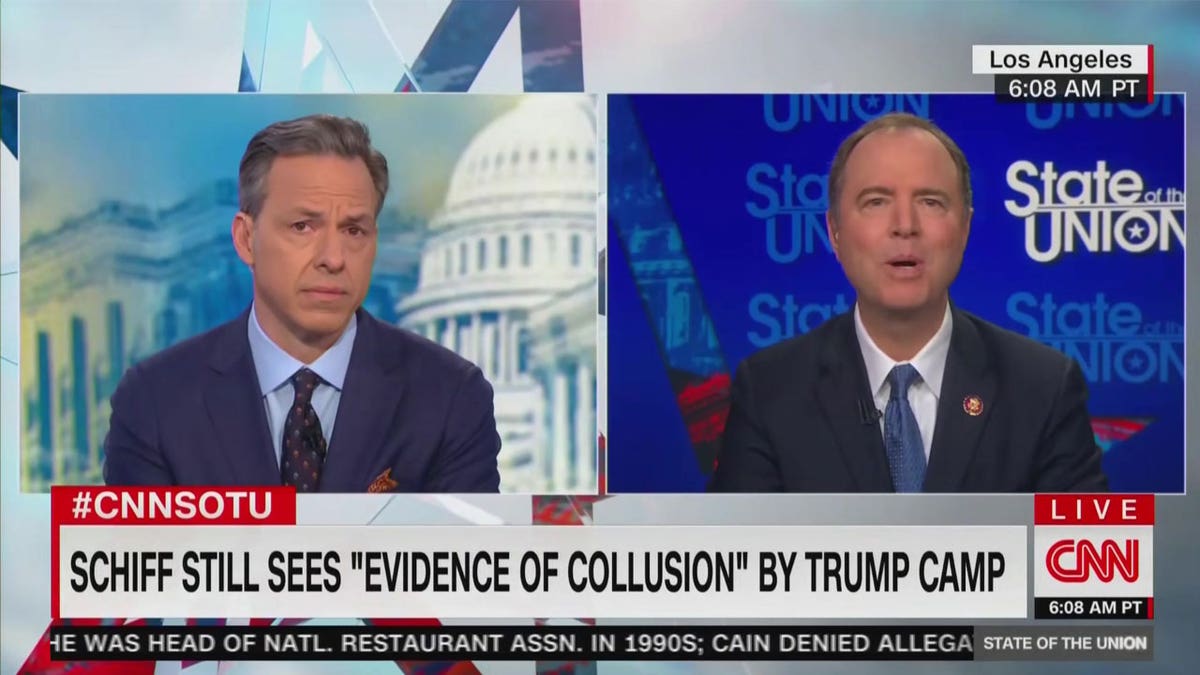
Adam Schiff appeared on cable news (Screenshot/CNN)
Over time, Schiff's language shifted. He began claiming the evidence was "in plain sight," implying that the proof was already public. Even after the Mueller report debunked the collusion narrative, Schiff maintained his stance, arguing that "ample evidence of collusion" was publicly available, distinguishing this from proof of a conspiracy. He continued to defend his claims even when pressed by journalists and TV personalities.
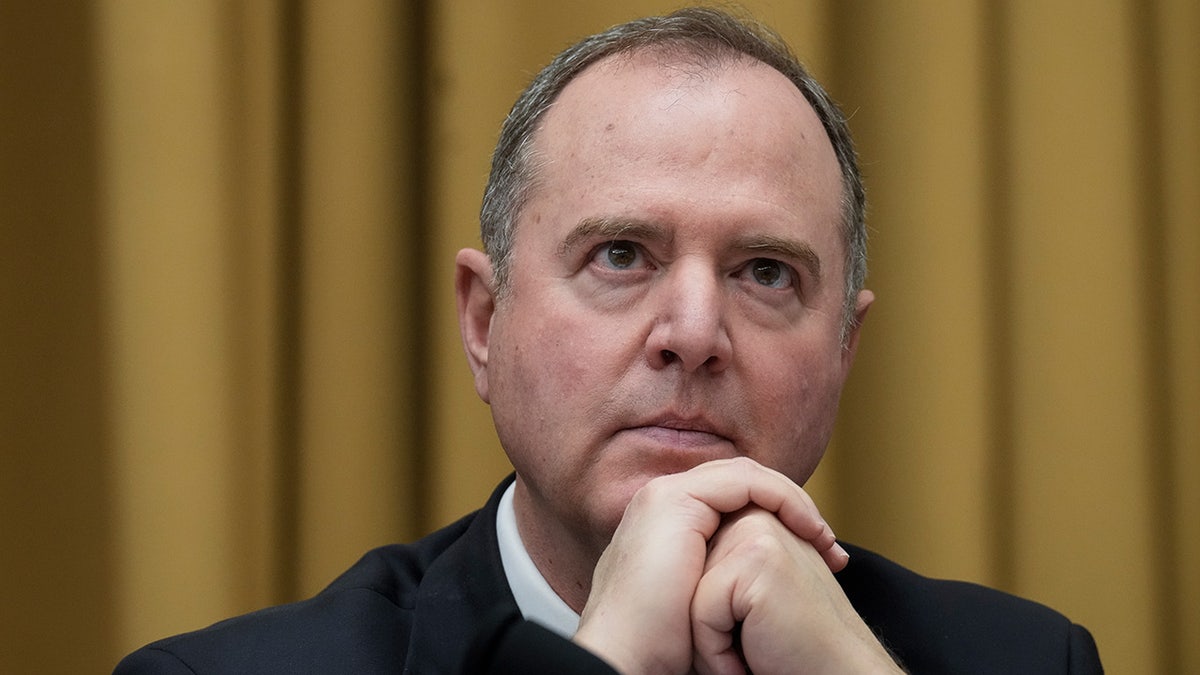
Schiff shifted his rhetoric towards his Russian collusion claims to saying the evidence was "in plain sight." (Drew Angerer/Getty Images)
Following the Durham report, Schiff dismissed the investigation as a "big bust" and attributed Republican criticism to his involvement in Trump's impeachment and the January 6th committee. He framed the censure as a "badge of honor," indicative of his effectiveness. Schiff is currently running for Dianne Feinstein's Senate seat.



